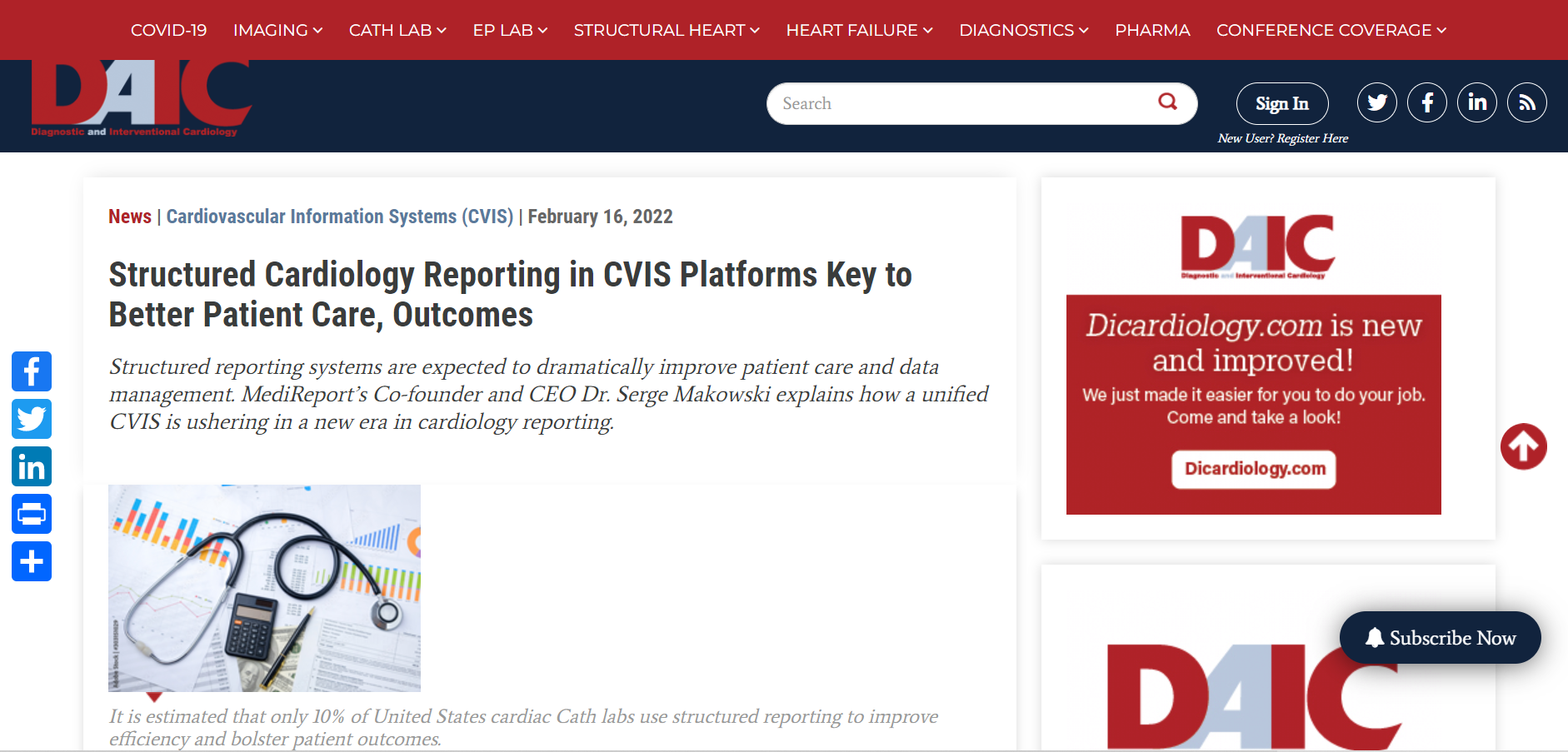Structured Cardiology Reporting in CVIS Platforms Key to Better Patient Care, Outcomes
Published in Dicardiology (DAIC), February 2022
Structured reporting systems are expected to dramatically improve patient care and data management. MediReport’s Co-founder and CEO Dr. Serge Makowski explains how a unified CVIS is ushering in a new era in cardiology reporting.
There is no debate on how crucial structured reporting is to improve patient care and enhance data accuracy—important points raised by a coalition of 14 professional societies led by the American College of Cardiology and by the Society for Cardiovascular Angiography and Interventions. However, it’s estimated that only 10% of United States cardiac Cath labs use structured reporting to improve efficiency and bolster patient outcomes.
“The goal of structured reporting is to make sure there is consistency in the documentation reporting of every cardiac procedure, regardless of the physician’s training, background, or style of work and that 100% of procedural data is recorded abiding by the latest clinical guidelines. The system intelligently guides the clinician on the required and important procedural data and generates near real-time reports which are automatically incorporated into the facility’s existing electronic health record. Subsequently, this can be accessed by any healthcare provider, which informs evidence-based treatment decisions, improves billing, and betters the patient care experience.”
In this article, Doctor Makowski co-founder of MediReport and interventional cardiologist walks us through the key features any reporting system must incorporate and how CardioReport 360™ brings unparalleled functionalities to procedure reports.
To find out more, check out the article on Diagnostic and Interventional Cardiology (DAIC).

FEBRUARY 15, 2022
